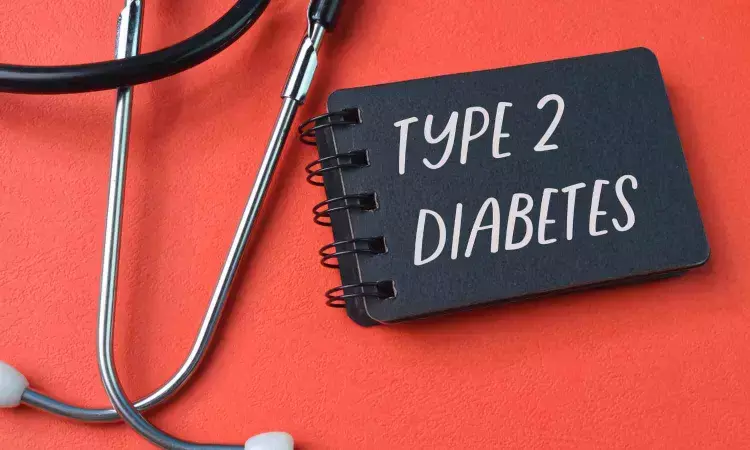- Home
- Medical news & Guidelines
- Anesthesiology
- Cardiology and CTVS
- Critical Care
- Dentistry
- Dermatology
- Diabetes and Endocrinology
- ENT
- Gastroenterology
- Medicine
- Nephrology
- Neurology
- Obstretics-Gynaecology
- Oncology
- Ophthalmology
- Orthopaedics
- Pediatrics-Neonatology
- Psychiatry
- Pulmonology
- Radiology
- Surgery
- Urology
- Laboratory Medicine
- Diet
- Nursing
- Paramedical
- Physiotherapy
- Health news
- Fact Check
- Bone Health Fact Check
- Brain Health Fact Check
- Cancer Related Fact Check
- Child Care Fact Check
- Dental and oral health fact check
- Diabetes and metabolic health fact check
- Diet and Nutrition Fact Check
- Eye and ENT Care Fact Check
- Fitness fact check
- Gut health fact check
- Heart health fact check
- Kidney health fact check
- Medical education fact check
- Men's health fact check
- Respiratory fact check
- Skin and hair care fact check
- Vaccine and Immunization fact check
- Women's health fact check
- AYUSH
- State News
- Andaman and Nicobar Islands
- Andhra Pradesh
- Arunachal Pradesh
- Assam
- Bihar
- Chandigarh
- Chattisgarh
- Dadra and Nagar Haveli
- Daman and Diu
- Delhi
- Goa
- Gujarat
- Haryana
- Himachal Pradesh
- Jammu & Kashmir
- Jharkhand
- Karnataka
- Kerala
- Ladakh
- Lakshadweep
- Madhya Pradesh
- Maharashtra
- Manipur
- Meghalaya
- Mizoram
- Nagaland
- Odisha
- Puducherry
- Punjab
- Rajasthan
- Sikkim
- Tamil Nadu
- Telangana
- Tripura
- Uttar Pradesh
- Uttrakhand
- West Bengal
- Medical Education
- Industry
Bexagliflozin Shows Promise as Adjunct Therapy for Type 2 Diabetes Management: Review

Greece: In the continuous quest for more effective treatments for type 2 diabetes (T2D), a new player has emerged on the scene: Bexagliflozin. A recent review suggests that this medication, when used in conjunction with diet and exercise, could significantly improve glycemic control in adults with type 2 diabetes.
Panagiotis Stachteas from the Second Department of Cardiology in the Aristotle University of Thessaloniki, Thessaloniki, Greece, and colleagues aimed to discuss the current evidence on the efficacy and safety of bexagliflozin, which provides an important alternative treatment option for patients with T2D.
Type 2 diabetes, characterized by insulin resistance and relative insulin deficiency, affects millions worldwide and is a significant contributor to morbidity and mortality. While diet and exercise remain cornerstone strategies for managing the condition, many patients require additional pharmacological interventions to achieve optimal glycemic control and reduce the risk of complications.
Sodium-glucose cotransporter-2 (SGLT2) inhibitors are a relatively new class of oral antidiabetic agents that act by inhibiting renal sodium and glucose reabsorption. Except for their glucose-lowering effects, they have been linked with a more significant weight loss and blood pressure (BP) reduction and a lower risk of hypoglycemia than other commonly prescribed antidiabetic drugs.
On 20 January 2023, bexagliflozin became the fifth orally administered SGLT2 inhibitor to be approved by the US Food and Drug Administration (FDA) for T2D treatment as an adjunct therapy to exercise and diet in the USA after canagliflozin, dapagliflozin, ertugliflozin, and empagliflozin.
Bexagliflozin was recently approved by the FDA as an adjunct hypoglycemic therapy to lifestyle interventions such as exercise and diet to improve glycemic control in T2D patients. It is an orally administered, highly selective SGLT-2 inhibitor that confers comparable dose-dependent reductions in HbA1c and fasting glucose (FPG) levels to widely prescribed antidiabetic drugs.
As well as glycemic control, bexagliflozin successfully reduced blood pressure levels and body weight in most phase II/III clinical trials. Furthermore, it seems to be consistently safe and effective for adults with CKD stage IIIa/b.
Bexagliflozin has shown to be well tolerated and to have an acceptable safety profile with minimal adverse effects and a low hypoglycemia risk. Notably, bexagliflozin demonstrated a safe cardiovascular (CV) profile in T2D, as it was noninferior to a placebo for MACE in high-risk adults with CVD comorbidities. However, there is still a lack of solid evidence supporting the bexagliflozin's superiority to other commercially available SGLT-2 inhibitors and, thus, prioritizing its use for T2D treatment.
The study findings were published online in touchREVIEWS in Endocrinology.
Reference:
Stachteas, Panagiotis, et al. "Bexagliflozin as an Adjunct Therapy to Diet and Exercise to Improve Glycaemic Control in Adults With Type 2 Diabetes." TouchREVIEWS in Endocrinology, vol. 20, no. 1, 2024, pp. 19-24.
Dr Kamal Kant Kohli-MBBS, DTCD- a chest specialist with more than 30 years of practice and a flair for writing clinical articles, Dr Kamal Kant Kohli joined Medical Dialogues as a Chief Editor of Medical News. Besides writing articles, as an editor, he proofreads and verifies all the medical content published on Medical Dialogues including those coming from journals, studies,medical conferences,guidelines etc. Email: drkohli@medicaldialogues.in. Contact no. 011-43720751


